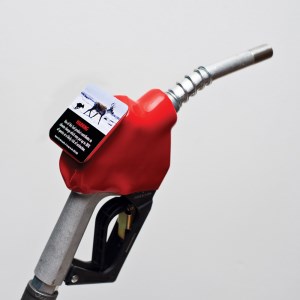The Editor,
Re. “Gas pump stickers? Really?” (Opinion, The Tri-City News, Nov. 4) and “‘Gas is bad’ labels could come to PoMo pumps” (The Tri-City News, Oct. 30).
I’m the executive director of Our Horizon, the Canadian non-profit that’s advocating for climate change labels on gas pump nozzles. It’s a concept that has been endorsed by some of the world’s top climate experts and over a hundred leaders in various fields from universities across North America.
Discourse on climate change in Canada tends to focus on points of extraction (e.g., oil sands and offshore drilling) or means of transportation (e.g., pipelines and shipping) but a well-to-wheel lifecycle analysis reveals that roughly 80% of greenhouse gas emissions come from end use; emissions from extraction and processing pale in comparison to emissions from vehicle combustion. Moreover, the only reason any of this infrastructure exists is that there’s a market for the product.
Unfortunately, we rarely question the simple act of pumping gas. It is a habitual, automatic behaviour that has been normalized for several generations.
The New Economics Foundation, a leading think tank on behavioural economics, observes that “psychologists’ theories on changing habits generally involve first unfreezing the subconscious action and raising it to a conscious level where we can consider the merits of alternative behaviours.”
Our greatest obstacle to transitioning to a more sustainable future is the systemic inertia to the status quo. The warning labels take the unexamined act of gassing up and de-normalize it. By engaging end-users in this way, the labels create a broader sense of dissatisfaction with the status quo and stimulate demand for alternatives that will drive change upstream. Complacent markets don’t change; a bit of discomfort is a good thing.
The fact that the idea has already generated so much discussion is only indicative of its potential.
I want to thank the leaders on Port Moody’s council for voting to implement the proposal and I hope that, in time, the dissenting votes will have the courage to join you. While there will be detractors, trust that you are taking an important place in history and that your example will inspire similar leadership within Canada and around the world.
Robert Shirkey, Our Horizon



